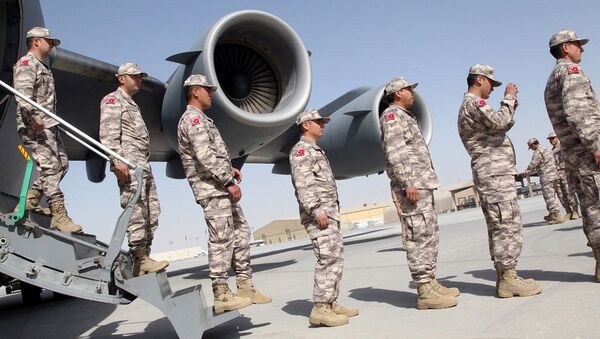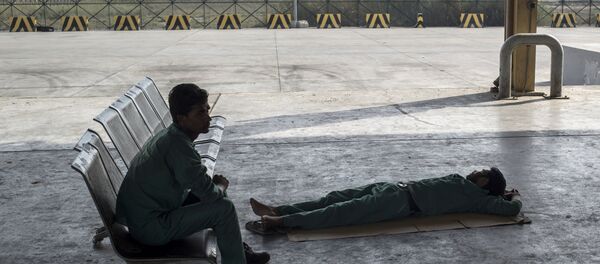The 13-point list demanded that Qatar cut its ties with Iran, close a Turkish military base on its soil and shut down Al Jazeera and its affiliates. Other demands called on Doha to publically denounce relations with Islamist groups, end suspected financing of terrorism and hand over persons designated as terrorists by Saudi Arabia, the UAE, Bahrain and Egypt.
In response, Doha described the demands as "unrealistic" and urged for them to be revised.
In a statement on Friday, the four countries warned that Doha’s refusal to implement the ultimatum untied their hands to take "economic, political and legal" measures they considered adequate.
Some experts believe that taking into account Kuwait’s mediating efforts Qatar could make certain concessions in order to find a compromise.
"Probably, Qatar is already making signals that it could make concessions to resolve the dispute. In particular, Doha may ask Ankara to withdraw Turkish troops from its territory. Probably, this is why Ankara recently said that it would consider pulling out Turkish troops from Qatar only if Doha made such a request," Nuri Yeşilyurt, political analyst at the Ankara University, told Sputnik Turkey.
Commenting on the threat of new sanctions against Qatar, Yeşilyurt underscored that the current blockade is negative only for Qatar and this is why Doha’s opponents do not want to compromise.
"They’re waiting for Qatar to back away. They will continue their blockade until Qatar does so," he said.
At the same time, the analyst pointed out that Qatar is ready for dialogue.
"Doha says that if implemented each of the 13 points of the ultimatum would breach its sovereignty. This is right. But Qatar is also showing its readiness to start dialogue. Its policy is open for dialogue that would be mediated by Kuwait. Doha has already indicated that it is ready for a compromise if the initial conditions are eased," Yeşilyurt said.
Suggesting on the possible concessions by Doha, the analyst said that Qatar may reduce criticism in the Al-Jazeera coverage, expel certain members of the Muslim Brotherhood, share intelligence on radical groups and agree the withdrawal of Turkish troops.
Yeşilyurt also said that the United States could play a role to help find a compromise in the Qatar crisis. According to the expert, Washington’s influence could "put the conflicting parties to a common denominator."
"If there is no progress made by the US there is the risk of tightening the blockade against Qatar. Possibly, the situation may result in discussing the suspension of Qatar’s membership in the Gulf Cooperation Council (GCC). Turkey says it will try to help reach a compromise, but currently the US could play the leading role," Yeşilyurt concluded.
The Qatari Foreign Ministry rejected the accusations of Doha's interference in other countries' domestic affairs.
Formally, the crisis was triggered after a Qatari news agency published a statement of Qatari Emir Sheikh Tamim bin Hamad Al Thani calling for the establishment of relations with Iran and expressing support for the Muslim Brotherhood.
Doha later said that the agency's website was hacked and there was no such statement from the Qatari leader. Nevertheless, Saudi Arabia, the UAE and Bahrain did not accept the explanation. A number of other states, including Turkey and Kuwait, have been engaged in mediating the crisis.






